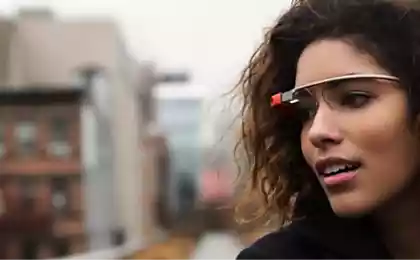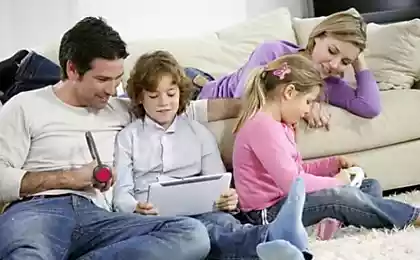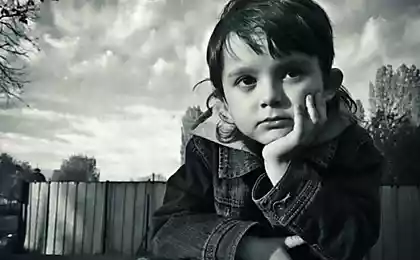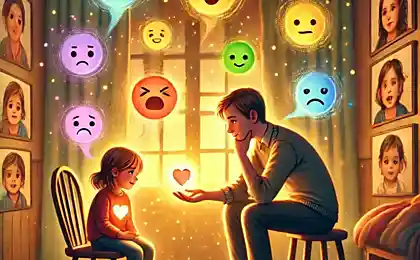698
Pink and black glasses: whether it is Necessary to protect children from the truth of life
The world in which our children grow up, — not a very pretty world. There are natural disasters and terrorist attacks, people suffer and they starve. How to tell the children about his imperfections? How to prepare them for life? In the end, in this world, children hurt other children and adults. What should I do? To grow in a greenhouse or not to hide the lead abominations of life? The rush to defend or tempering? Where is the Golden mean?
Pink and black glasses
First of all we must remember that every age has its own characteristics. Kids sometimes do not able to understand what was happening. And really: how can you tell a preschooler what a concentration camp? How to explain what repressions or political terror? For example, in the publishing house "Nastya and Nikita", which produces books for children of 5-10 years old, wanted to publish a book about the life of St. Luke (Voino-Yasenetsky), but it turned out that it is simply impossible to explain to a young child, what is the Cheka, concentration camps and so on. The minds of children simply cannot accommodate such things. And trying to explain that the world is cruel and unfair, it is possible to provide the child with a serious neurosis: if adults can't keep the world safe and cozy, what to do in this child? From time to time the child must understand that he is safe. That he has someone to protect and that it is the responsibility of adults.
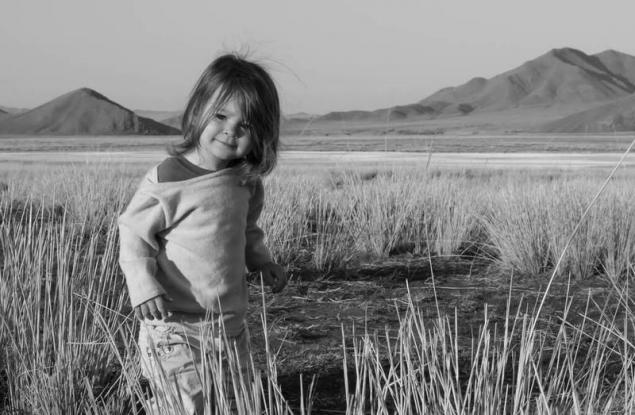
"Of course, not always adults need to flee to protect the child from any threats, says child psychologist Eugene Payson. — If the child can cope with what his ability, adults should not intervene and do it for him. If, for example, a child teases a classmate, parents should not run away with him to understand, not giving the child opportunities to defend themselves on the available level. If there are problems with a classmate, parents can discuss with the child how he defend himself, to understand that it hurts, show possible ways of response that upsets him, to help him to cope on their own. But if the forces are not equal, if against it the whole class or several people, if he has a conflict with the teacher, where the child can not defend themselves at their level, then parents have the sense to intervene. The most important thing for parents to understand well the imaginary line where the kid can handle himself, and where can't. Understating and omitting this line, we do the child is helpless; it's all the same what to wipe his nose with the teenager and chase after him to wear a cap when he goes out on a date".
Each age has its a real threat, and to work with them. When the child begins to make independent steps in the world, he may encounter other people's aggressive adults. Our task is to teach him when he can handle himself, and when I need to run to the class teacher, contact the nearest adult to call mom and dad.
Terrible news
To fully protect the child from the terrible news of the terrorist attacks, for example, is hardly possible. But when a national tragedy occurs, children next to adults and hear them discussing something. And what happens is important and should be discussed with children.
"It is very important to give the child real mechanisms to protect themselves, says Eugene Payson. We warn them not to play on the windowsill, even if the window mosquito net. And children know that if you won't do it, the window does not fall out. If you're going to cross the road on a green light — you have less chance to get hit by a car. You are unable to defend themselves.
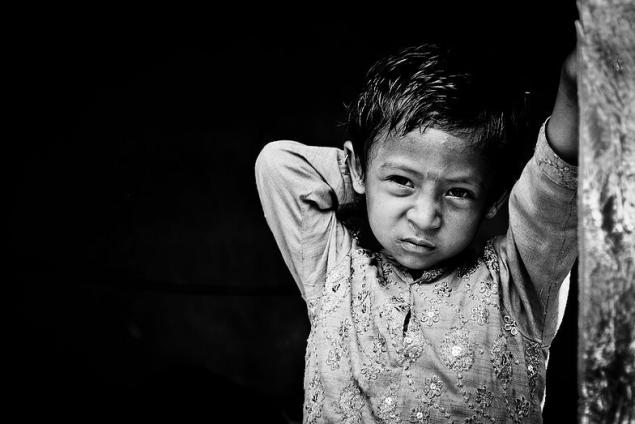
Exactly the same thing here: children need to know how to protect myself, not to feel like a pawn with which to do anything. Here are the rules of safety: for example, go around the crowd, so nobody got trampled. Children should show that the company also tries to protect themselves: here at the entrance to the Mall or to the airport is the scope of x-raying the Luggage, there is a metal detector — it allows to detect people with guns. Mom and dad don't mind the inspection — because it is a measure of General security.
The child needs to feel that he is not a rabbit in headlights, which is very easy to eat that it also depends on something.
Bloody and emotional details are not needed. Unfortunately, sometimes adults try so hard to "reach out" to the children, to impress them that I can achieve absolutely not what I wanted. Cases are known when primary school children were feared to go to school after school line of memory of the events in Beslan: and if in our schools the terrorists will come and kill me? Emotional need in the other — to do something in memory of the victims, especially if the dead was someone close (e.g., plant a tree or create a video)... it is Important to talk about how people help other people. As bring food, water, supplies to flood victims, how to dismantle the rubble after the earthquake and build new homes, as people are not left alone in trouble. Fixed on the terrible and bloody — not worth it.
"No need to frighten the children beyond measure, — says Eugene Payson. — When we tell them the rules of behavior on the road, we never say “the car'll pick you up, roll the cake, you have broken ribs, and shrapnel pierce the lungs.” We don't describe the terrible consequences we focus on how to defend themselves. If a child comes to parents and says that she is afraid of war, terrorist attacks and so forth, not worth it to make fun of. Needless to say “I'm scared too, let's be scared together”. The more irrational the fear, the harder it is to deal with it.
If the child did not cope, it would be nice to go to a psychologist. It is important not to drive fear inside the child is not embarrassed to talk about it and not have imagined the incredible consequences: the imagination is richer than reality. And another thing: news and analytical television programs should not run in the background. If you want your child was up to date with current news, sit down with him and explain what's going on. Otherwise, then parents say, “don't know where he got that at home we never spoke about it”. Today TV is not a window to the world, and well into the abyss, and to filter the information I need input".
The terrible events of the past
History the inhumane. It was human sacrifice and mass murder. It was a world war and genocide. How to tell the kids? We do remember from childhood, the torture of the young and tortured Zoya Kosmodemyanskaya; stories about the torments that are endured heroes for their country, was an important part of our upbringing. But is it really that necessary to tell the children? Children's psyche is protecting itself from the horror, from the questions "could I, as the young, to survive, when under the nails driven needles". Someone saved protective cynicism, and someone, God forbid, will become interested and will want to repeat.
And impossible to be silent.
When you are silent, the unknown is worse than the terrible truth. Speculation and imagination can be scarier than reality. It is worse to lie: children always know when they are being deceived.
But how to tell children about tragic events so that they are able to perceive it?
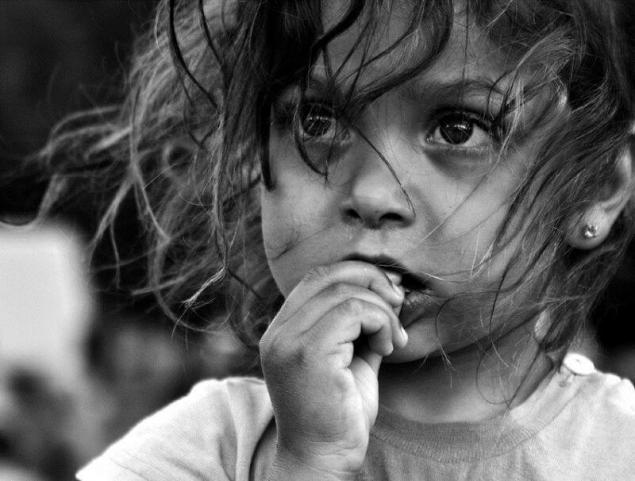
The story is well perceived through family stories, through photographs and documents: real pradedov letters from the front and prababushkin stories, though it's retelling, talking about the war more than a movie with special effects and a parade on red square.
Speak about the tragic pages of the past help children's books that allow you to see events through the eyes of their surviving children — for example, "Sugar baby" Olga Gromova, "Children of the Raven" Yulia Yakovleva, "Baptized with crosses" Edward Kochergin.
In these conversations, and while reading these books again is important, not horror, not cruel details, and the examples of people who remain human in the most inhumane conditions we do see, how people live culture and pass it on to their children; respect other cultures; as they can maintain their dignity and to help other people.
It is not necessary to force the child to watch hard movies — on some they may have not educational, and traumatic. It is not necessary to give answers before the child Matures, the questions and thinking of the child they grow older will certainly appear, and it is important not to miss the moment and need to know what to offer your child along to watch, to read together, discuss what Museum to go to.
To put pressure on the emotions is not: facts, and so emotionally charged, they speak for themselves. Pathos, pathos and vozdevaya hands here. But it is important to give the child an emotional outlet from the experienced and thoughtful experience. There are heavy — not just for kids! — films like "Ordinary fascism" Romm or "Come and see" him. And if you decide to watch them with your children, then you need to talk. You need to allow them to process this difficult experience, this traumatic experience — in the process the important understanding as a man to be a man, how not to lose yourself, do not rustelematics. And here literature and art — mediated human experience, can very seriously help.
Also interesting: How to make a growing up son
Talk with your child as if he is an adult
In short, the most important thing when discussing historical events is :
Author: Irina Lukyanova
P. S. And remember, only by changing their consumption — together we change the world! ©
Source: foma.ru/teplichnoe-delo.html
Pink and black glasses
First of all we must remember that every age has its own characteristics. Kids sometimes do not able to understand what was happening. And really: how can you tell a preschooler what a concentration camp? How to explain what repressions or political terror? For example, in the publishing house "Nastya and Nikita", which produces books for children of 5-10 years old, wanted to publish a book about the life of St. Luke (Voino-Yasenetsky), but it turned out that it is simply impossible to explain to a young child, what is the Cheka, concentration camps and so on. The minds of children simply cannot accommodate such things. And trying to explain that the world is cruel and unfair, it is possible to provide the child with a serious neurosis: if adults can't keep the world safe and cozy, what to do in this child? From time to time the child must understand that he is safe. That he has someone to protect and that it is the responsibility of adults.

"Of course, not always adults need to flee to protect the child from any threats, says child psychologist Eugene Payson. — If the child can cope with what his ability, adults should not intervene and do it for him. If, for example, a child teases a classmate, parents should not run away with him to understand, not giving the child opportunities to defend themselves on the available level. If there are problems with a classmate, parents can discuss with the child how he defend himself, to understand that it hurts, show possible ways of response that upsets him, to help him to cope on their own. But if the forces are not equal, if against it the whole class or several people, if he has a conflict with the teacher, where the child can not defend themselves at their level, then parents have the sense to intervene. The most important thing for parents to understand well the imaginary line where the kid can handle himself, and where can't. Understating and omitting this line, we do the child is helpless; it's all the same what to wipe his nose with the teenager and chase after him to wear a cap when he goes out on a date".
Each age has its a real threat, and to work with them. When the child begins to make independent steps in the world, he may encounter other people's aggressive adults. Our task is to teach him when he can handle himself, and when I need to run to the class teacher, contact the nearest adult to call mom and dad.
Terrible news
To fully protect the child from the terrible news of the terrorist attacks, for example, is hardly possible. But when a national tragedy occurs, children next to adults and hear them discussing something. And what happens is important and should be discussed with children.
"It is very important to give the child real mechanisms to protect themselves, says Eugene Payson. We warn them not to play on the windowsill, even if the window mosquito net. And children know that if you won't do it, the window does not fall out. If you're going to cross the road on a green light — you have less chance to get hit by a car. You are unable to defend themselves.

Exactly the same thing here: children need to know how to protect myself, not to feel like a pawn with which to do anything. Here are the rules of safety: for example, go around the crowd, so nobody got trampled. Children should show that the company also tries to protect themselves: here at the entrance to the Mall or to the airport is the scope of x-raying the Luggage, there is a metal detector — it allows to detect people with guns. Mom and dad don't mind the inspection — because it is a measure of General security.
The child needs to feel that he is not a rabbit in headlights, which is very easy to eat that it also depends on something.
Bloody and emotional details are not needed. Unfortunately, sometimes adults try so hard to "reach out" to the children, to impress them that I can achieve absolutely not what I wanted. Cases are known when primary school children were feared to go to school after school line of memory of the events in Beslan: and if in our schools the terrorists will come and kill me? Emotional need in the other — to do something in memory of the victims, especially if the dead was someone close (e.g., plant a tree or create a video)... it is Important to talk about how people help other people. As bring food, water, supplies to flood victims, how to dismantle the rubble after the earthquake and build new homes, as people are not left alone in trouble. Fixed on the terrible and bloody — not worth it.
"No need to frighten the children beyond measure, — says Eugene Payson. — When we tell them the rules of behavior on the road, we never say “the car'll pick you up, roll the cake, you have broken ribs, and shrapnel pierce the lungs.” We don't describe the terrible consequences we focus on how to defend themselves. If a child comes to parents and says that she is afraid of war, terrorist attacks and so forth, not worth it to make fun of. Needless to say “I'm scared too, let's be scared together”. The more irrational the fear, the harder it is to deal with it.
If the child did not cope, it would be nice to go to a psychologist. It is important not to drive fear inside the child is not embarrassed to talk about it and not have imagined the incredible consequences: the imagination is richer than reality. And another thing: news and analytical television programs should not run in the background. If you want your child was up to date with current news, sit down with him and explain what's going on. Otherwise, then parents say, “don't know where he got that at home we never spoke about it”. Today TV is not a window to the world, and well into the abyss, and to filter the information I need input".
The terrible events of the past
History the inhumane. It was human sacrifice and mass murder. It was a world war and genocide. How to tell the kids? We do remember from childhood, the torture of the young and tortured Zoya Kosmodemyanskaya; stories about the torments that are endured heroes for their country, was an important part of our upbringing. But is it really that necessary to tell the children? Children's psyche is protecting itself from the horror, from the questions "could I, as the young, to survive, when under the nails driven needles". Someone saved protective cynicism, and someone, God forbid, will become interested and will want to repeat.
And impossible to be silent.
When you are silent, the unknown is worse than the terrible truth. Speculation and imagination can be scarier than reality. It is worse to lie: children always know when they are being deceived.
But how to tell children about tragic events so that they are able to perceive it?

The story is well perceived through family stories, through photographs and documents: real pradedov letters from the front and prababushkin stories, though it's retelling, talking about the war more than a movie with special effects and a parade on red square.
Speak about the tragic pages of the past help children's books that allow you to see events through the eyes of their surviving children — for example, "Sugar baby" Olga Gromova, "Children of the Raven" Yulia Yakovleva, "Baptized with crosses" Edward Kochergin.
In these conversations, and while reading these books again is important, not horror, not cruel details, and the examples of people who remain human in the most inhumane conditions we do see, how people live culture and pass it on to their children; respect other cultures; as they can maintain their dignity and to help other people.
It is not necessary to force the child to watch hard movies — on some they may have not educational, and traumatic. It is not necessary to give answers before the child Matures, the questions and thinking of the child they grow older will certainly appear, and it is important not to miss the moment and need to know what to offer your child along to watch, to read together, discuss what Museum to go to.
To put pressure on the emotions is not: facts, and so emotionally charged, they speak for themselves. Pathos, pathos and vozdevaya hands here. But it is important to give the child an emotional outlet from the experienced and thoughtful experience. There are heavy — not just for kids! — films like "Ordinary fascism" Romm or "Come and see" him. And if you decide to watch them with your children, then you need to talk. You need to allow them to process this difficult experience, this traumatic experience — in the process the important understanding as a man to be a man, how not to lose yourself, do not rustelematics. And here literature and art — mediated human experience, can very seriously help.
Also interesting: How to make a growing up son
Talk with your child as if he is an adult
In short, the most important thing when discussing historical events is :
- honesty, a quiet and sincere conversation without pathos, pathos, the pressure of emotion;
- the ability to look at historical events through the prism of private human life, the child of destiny, family history;
- finally, output in the construction — in a discussion of the person that will be able to resist evil. published
Author: Irina Lukyanova
P. S. And remember, only by changing their consumption — together we change the world! ©
Source: foma.ru/teplichnoe-delo.html
Add this juice, black sesame seeds and you'll get a real elixir of youth
The spectacle is impressive! Incredible creatures in the caves of New Zealand

